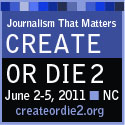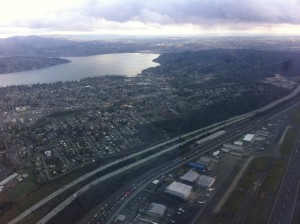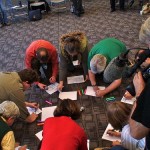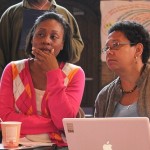
Journalism students at Whitney High School (CA) take the TAO of Journalism Pledge.
“We want to show our readers and the larger journalism community that we stand by the ideals of being Transparent, Accountable and Open in our reporting and all of our practices as student journalists.” — The Roar, Whitney High School, CA
“Journalistic ethics are becoming even more critical to the practice of journalism as the field evolves….[We] like the simplicity of the pledge and the fact that it can apply equally and easily to citizen journalists, students, bloggers, professional journalists in all media.” — The Kerronicle, Kerr High School, Houston, TX
“Why are we doing it? Well, because we should.” — The Purple Tide, Chantilly High School, VA
Almost 1,000 student journalists from coast to coast have now taken the “TAO of Journalism” Pledge, promising to be Transparent, Accountable and Open in their practice of journalism. More than 850 of them nationwide took the Pledge during the Journalism Education Association’s Scholastic Journalism Week (Feb. 19-26). The quotes above are among comments emailed to the Washington News Council, which originated the TAO of Journalism concept and trademarked the TAO Seal.
The TAO Pledge and Seal allow journalists to make a public statement of ethical principles to help instill trust among their readers, viewers and listeners. The JEA endorsed the concept at the organization’s annual national convention in Kansas City last November. Kathy Schrier, executive director of the Washington Journalism Education Association and executive assistant at the WNC, attended the convention and led the endorsement effort. The TAO Pledge also may discourage school administrators from imposing prior review on student publications, JEA leaders believe.
The TAO Pledge — which is open to mainstream journalists, independent bloggers, freelancers, newsletter writers, or anyone else committing “acts of journalism,” asks journalists to publicly promise that they will be “Transparent” about who they are, “Accountable” and willing to correct any errors, and “Open” to other points of view. The idea, originally introduced at a Journalism That Matters gathering, is steadily gaining traction with media organizations and individual journalists worldwide as a way to help maintain public trust. (See Directory page on TAO website for a list of pledgers so far.)
After all, journalists want everyone they cover to be transparent, accountable and open. So why not them? It’s a two-way street. Those qualities always increase credibility and public trust in any institution or organization that adopts them. The same will be true for journalists and media organizations.
Any media group or individual journalist who takes the TAO Pledge gets listed on the TAO of Journalism website with a link to their publication and/or website. They can then post the TAO Seal in their masthead or on their website.
For some examples of how some sites are using the TAO Seal, see:
1. Spot.us
2. Common Language Project
3. De Standaard, Belgium
4. B-Town Blog
5. Fremocentrist
Student journalism organizations may take the TAO Pledge and display the Seal for free. Independent individual journalists are asked to donate $25 per year and media organizations (three or more staff) are asked to donate $50 per year to help support the TAO project’s website, maintenance and outreach. The Washington News Council is a 501c3 nonprofit organization, so donations are tax-deductible.
JEA is encouraging schools and student media to sign the Pledge and to invite their school administrators to sign on, as well. Students receive a color poster of the TAO Pledge that can be displayed as a reminder of their commitment. In addition, student publications that took the TAO Pledge during Scholastic Journalism Week receive temporary stick-on “TAOttoos” of the TAO seal for all members of their staff. The Washington News Council ordered 3,000 of these to be mailed to TAO pledgers nationwide.
The TAO Pledge and Seal are open to anyone who is interested. Just TAO it!
This article was originally published by John Hamer on the Washington News Council‘s site.
 Disrupting the Status Quo
Disrupting the Status Quo



